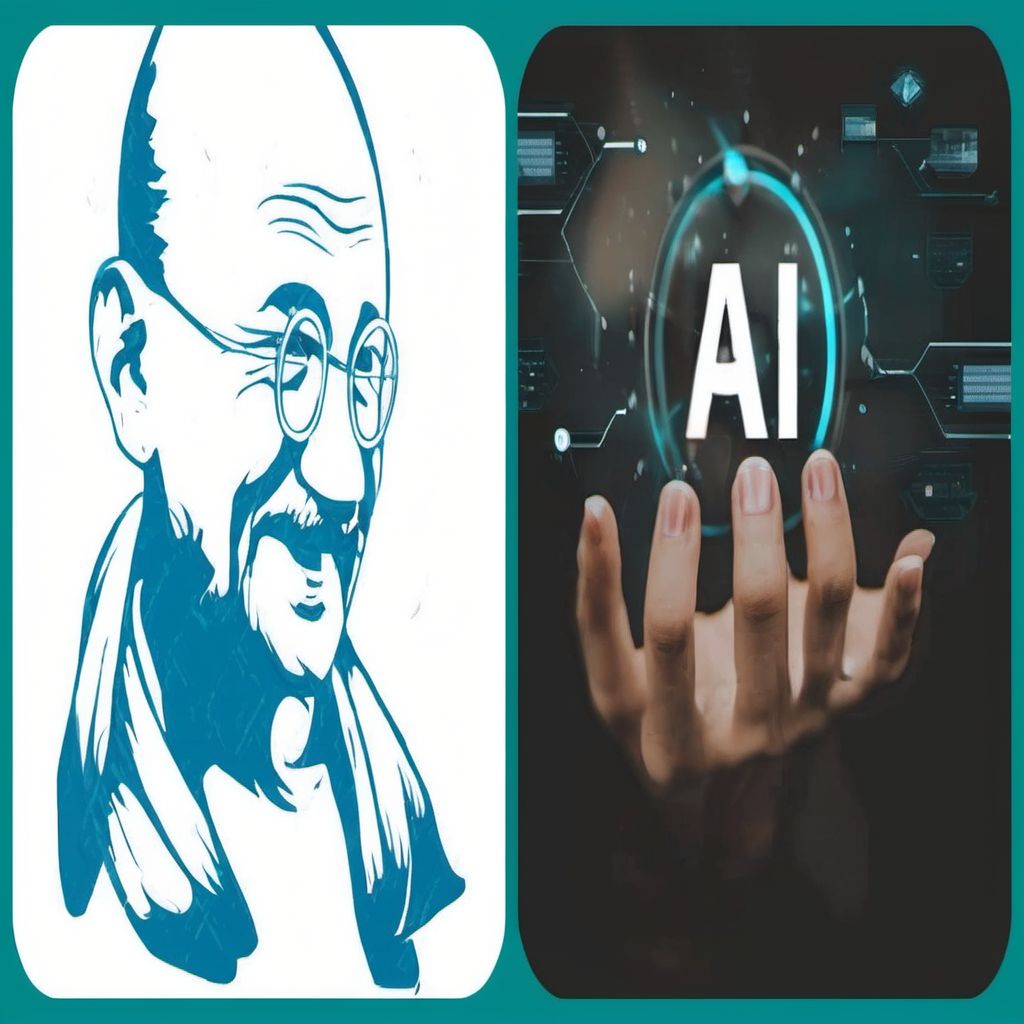Biju Dharamapalan
As we forge ahead into this digital age, embracing Gandhi’s philosophy could pave the way for a more humane and equitable future. Artificial intelligence (AI) is increasingly shaping our world, making the relevance of many ancient philosophies seem distant. People may find it difficult to comprehend the hardships our predecessors endured during their lifetimes.
Even people may find it difficult to believe that great philosophers, who have provided us with a wealth of knowledge, once lived on this planet. We will accept only those incidents and individuals whose photographs or videos are accessible. As of now, we are fortunate to have documentary evidence of our nation’s father, Mahatma Gandhi. Otherwise, people would have forgotten him. But even in this digital world where AI rules humanity, Gandhiji’s philosophy remains profoundly relevant.
The core values that Gandhi stood for—non-violence, truth, self-reliance, simplicity and social justice offer timeless guidance for managing the challenges humanity faces even today. We can interpret non-violence (Ahimsa) in this digital era as ensuring the ethical and responsible use of AI technologies. Gandhian principles have high relevance today as we start integrating AI into aspects of human life, be it healthcare, economy, agriculture, or warehousing. As we indulge in digital warfare Gandhi’s nonviolence principle prompts us to develop technologies that prioritize human welfare and minimize harm.
Cyberbullying is on the rise, and many individuals are becoming its victims. Cyberbullying fundamentally involves the use of words, images, or exclusion on the internet as a means of violence. Unfortunately, even political parties sometimes encourage such behaviour for gain, which fosters enmity between communities—a divide that can be challenging to bridge.
By embracing ahimsa, individuals can practice empathy and kindness online, refraining from harmful or derogatory comments. Promoting non-violence in digital spaces could lead to reduced aggression and a more supportive online environment. Gandhi’s emphasis on truth serves as a powerful antidote to the deceit and falsehoods that often fuel cyberbullying. Many online bullies hide behind anonymous profiles, spreading rumours, lies, or misinformation. Truthfulness can also empower victims to speak out against bullying, creating a culture of transparency and accountability. In the digital age, where people can react instantly and sometimes impulsively, applying self-discipline is crucial.
In a world where major tech companies dominate AI development, Gandhi’s philosophy of self-reliance (swadeshi) is highly applicable. It encourages nations, especially third-world countries, to build their own AI capabilities and not rely solely on foreign technology. Fostering digital independence and ensuring the use of AI in ways that benefit local economies and cultures is crucial. One of Gandhi’s most enduring legacies was his advocacy for the marginalised. In the AI-dominated world, we must ensure that these technologies do not exacerbate inequalities. We should use AI to promote inclusivity, reduce the digital divide, and provide technology access for all, which is in line with Gandhi’s vision of social justice.
In essence, Gandhian philosophy, with its moral clarity and human-centered approach, serves as a vital guide for shaping the AI-driven future. Even in a world where technology seems to dominate, Gandhi’s philosophy remains highly relevant for fostering peace and happiness globally.
(The author is a Dean at Garden City University and an adjunct faculty member at NIAS, Bangalore; views are personal)








